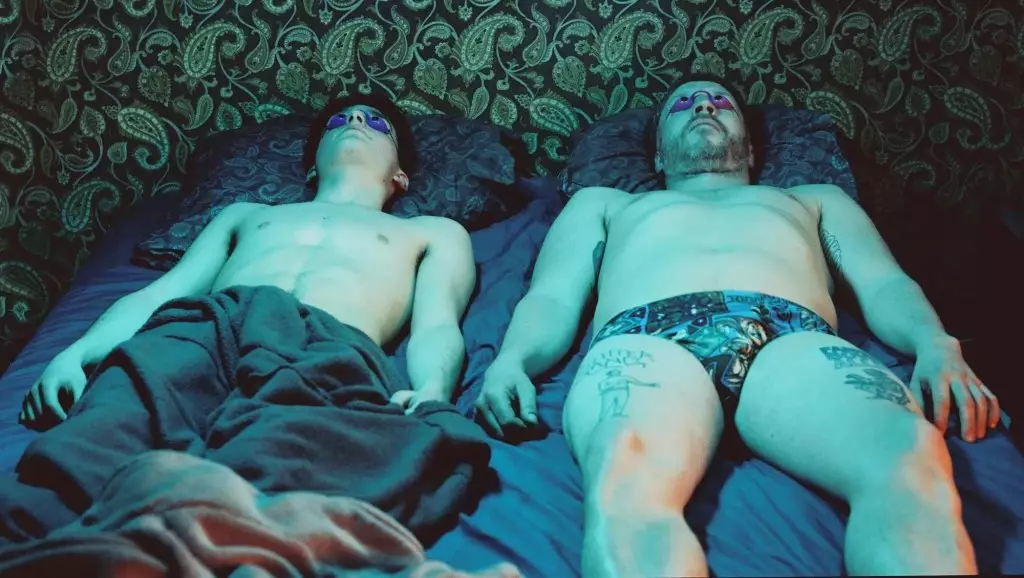In an era where streaming content has an insatiable appetite for fresh narratives, the Belgian drama series “Putain” emerges not just as another addition to the catalogue but as a profound commentary on urban life, family dynamics, and youth resilience. The raw intensity of this show, which recently secured its Spanish and Portuguese launches through Filmin, is a testament to the universal themes that resonate across different cultures—friendship, identity, and the struggle against one’s circumstances. Following its introduction at Series Mania, “Putain” has set the stage for international acclaim and a promising trajectory in global markets.
What makes “Putain” stand out is its unflinching portrayal of inner-city Brussels. It doesn’t sugarcoat the difficulties faced by its characters, particularly the protagonist Gigi, who grapples with the complexities of his mother’s relationship with her former lover, a looming figure from their turbulent past. This multi-layered narrative invites viewers to reflect on their own lives, as it mirrors the societal challenges many face today.
The Cinematic Craftsmanship Behind “Putain”
The aesthetic choices in “Putain” significantly enhance the storytelling experience. As noted by Jaume Ripoll Vaker, co-founder and CCO of Filmin, the cinematography and music contribute heavily to its emotional weight. It’s not merely a visual backdrop—it becomes an active participant in the storytelling. The series’ commitment to authentic soundscapes and richly crafted visuals fosters a palpable connection between the audience and the characters. This immersive quality is essential as it allows the viewers to feel the tension and the triumphs intrinsic to Gigi’s world.
Furthermore, the diverse cast enriches the narrative tapestry of “Putain.” Featuring talents like Liam Jacqmin and Liesa Van der Aa, the show’s representation of multi-racial experiences in urban settings reflects an increasingly relevant discourse in media today. By showcasing the lives of individuals from varied backgrounds, “Putain” champions inclusivity, providing a voice to those who often go unheard in mainstream narratives.
Critical Acclaim and Audience Reception
The immediate success of “Putain” in Belgium is nothing short of remarkable. Bart De Groote, CEO of Streamz, highlighted its breakout status, noting it became the center of conversation upon its national release. Such an impactful response illustrates the show’s ability to touch a nerve with audiences. Its recognition at Series Mania, alongside accolades like a Special Mention from the Panorama jury, speaks volumes to its quality and the skillful execution of its directors and cast.
As the series receives overwhelming praise, it offers a glimpse into the narrative depth that streaming platforms are increasingly seeking. The phrase described by the Lille festival, “fucking great actors, fucking great directing, fucking great series” encapsulates the critical acclaim it has garnered. This kind of response indicates not just a momentary buzz but the potential for “Putain” to become a significant cultural artifact within the realm of foreign-language programming.
The Future of “Putain” in the Global Landscape
With its entrancing themes and powerful character arcs, “Putain” is poised for a promising future as it expands into Spain and Portugal through Filmin. Kristoffel Mertens, producer at Panenka, expresses a sense of optimism not just for these regions but for other territories where negotiations are ongoing. This eagerness reflects a larger trend within the streaming industry, which increasingly values narrative diversity and international experiences.
As audiences around the globe seek more authentic stories that challenge their perceptions and invoke discussions on critical societal issues, “Putain” stands at the forefront of delivering such narratives. It underscores the potential for local stories to achieve global resonance while inviting viewers to engage with perspectives beyond their own. As “Putain” unfolds across various cultural landscapes, it may very well redefine how urban life, family ties, and youthful struggles are portrayed in the ever-evolving tapestry of modern television.

